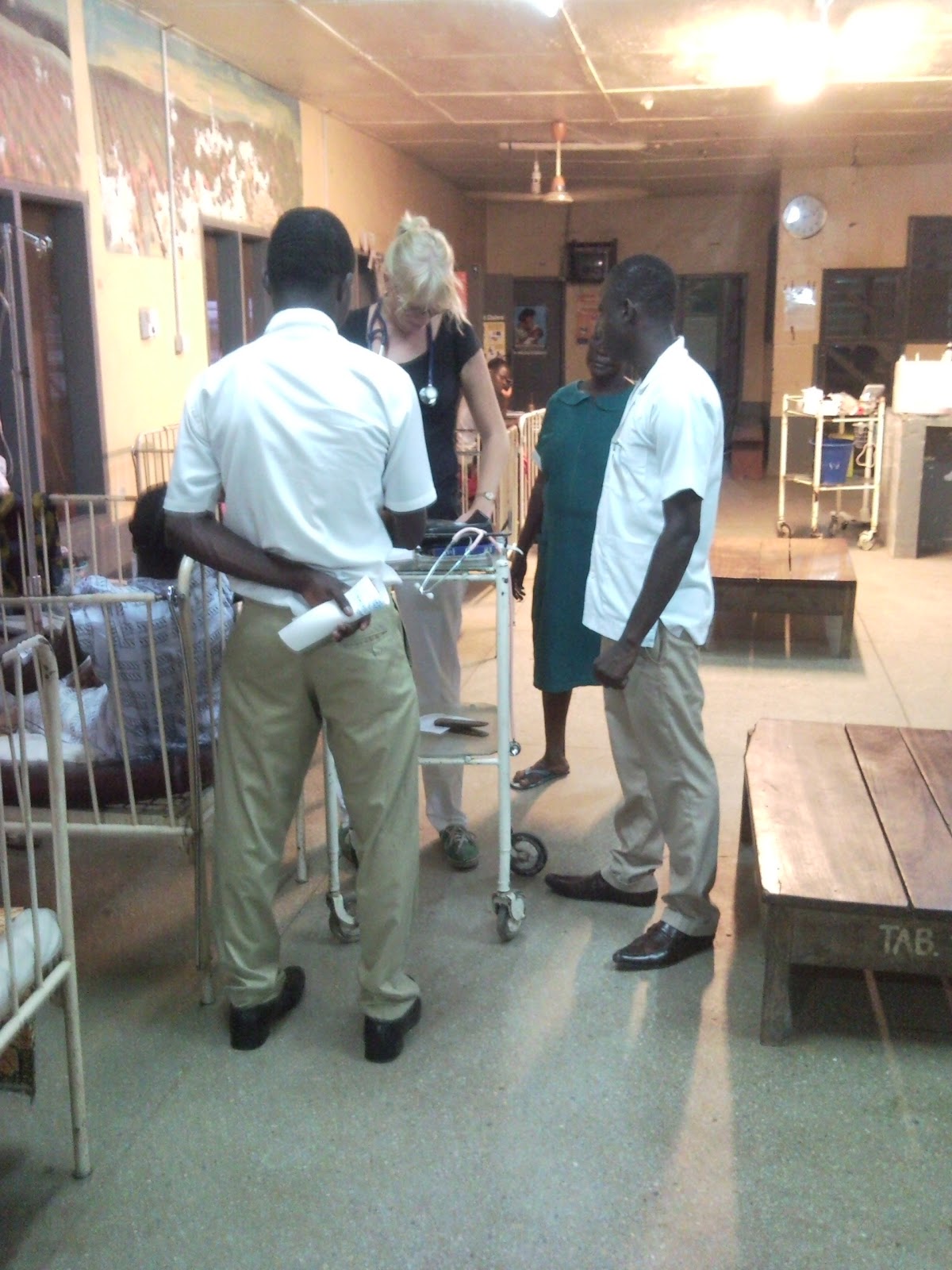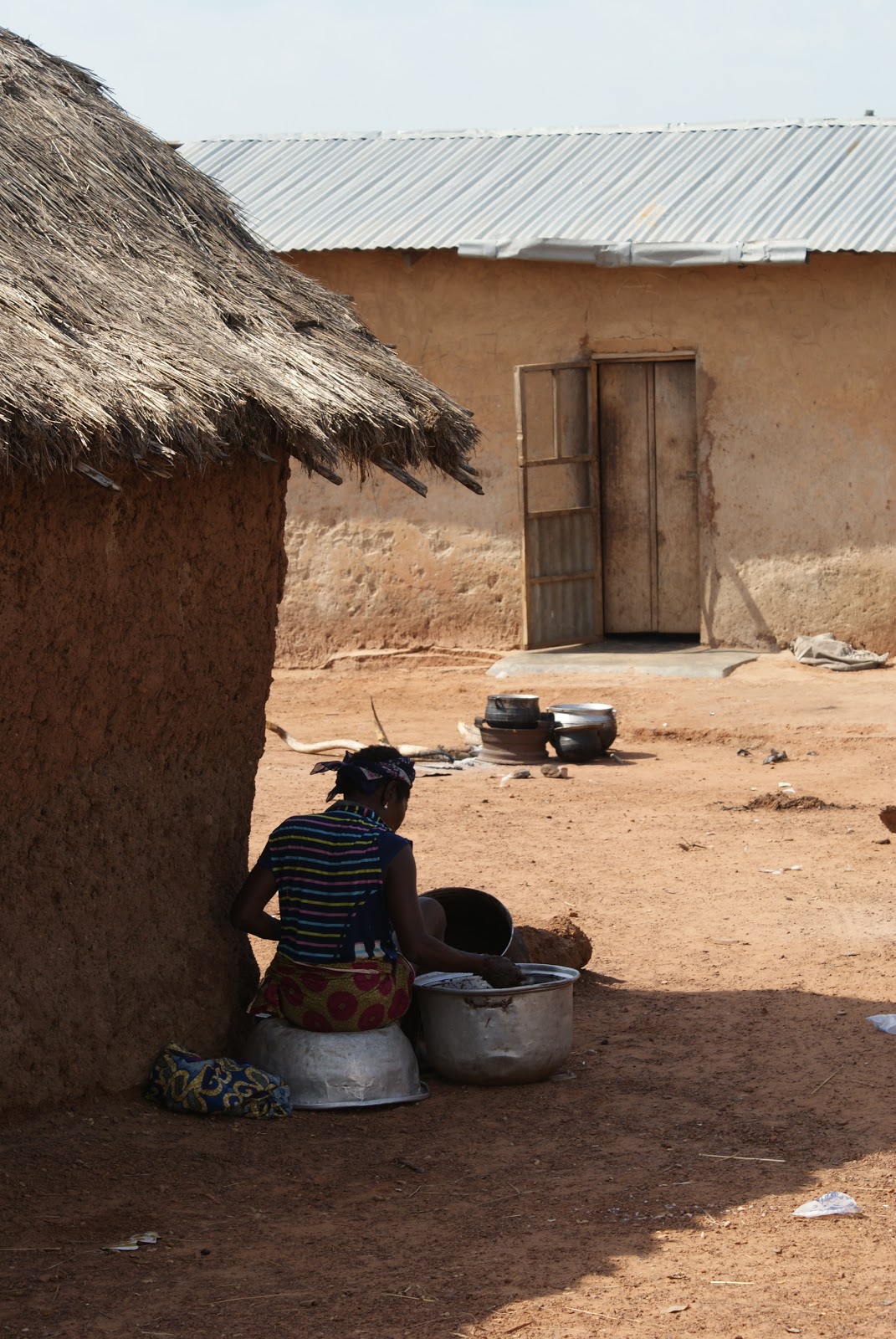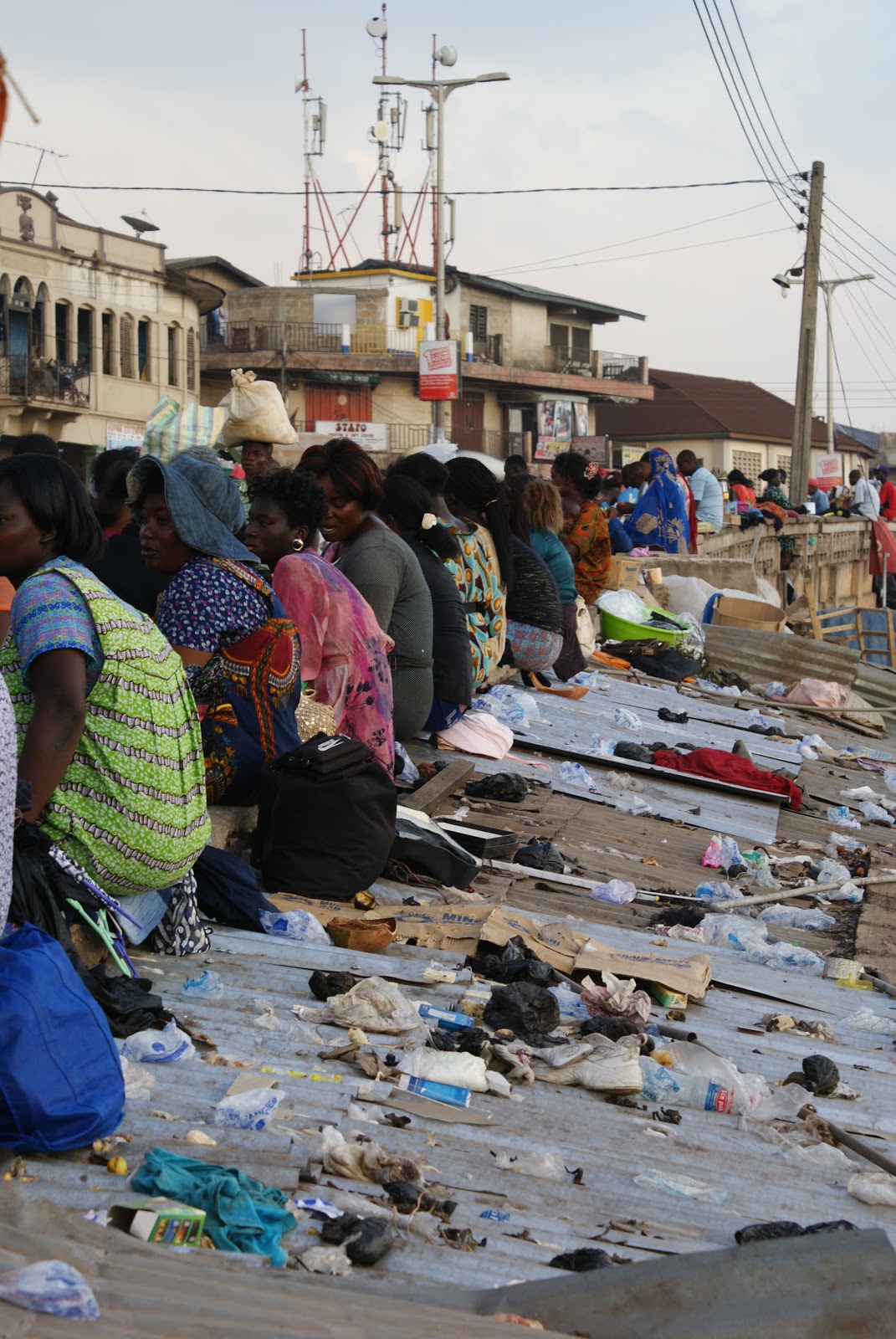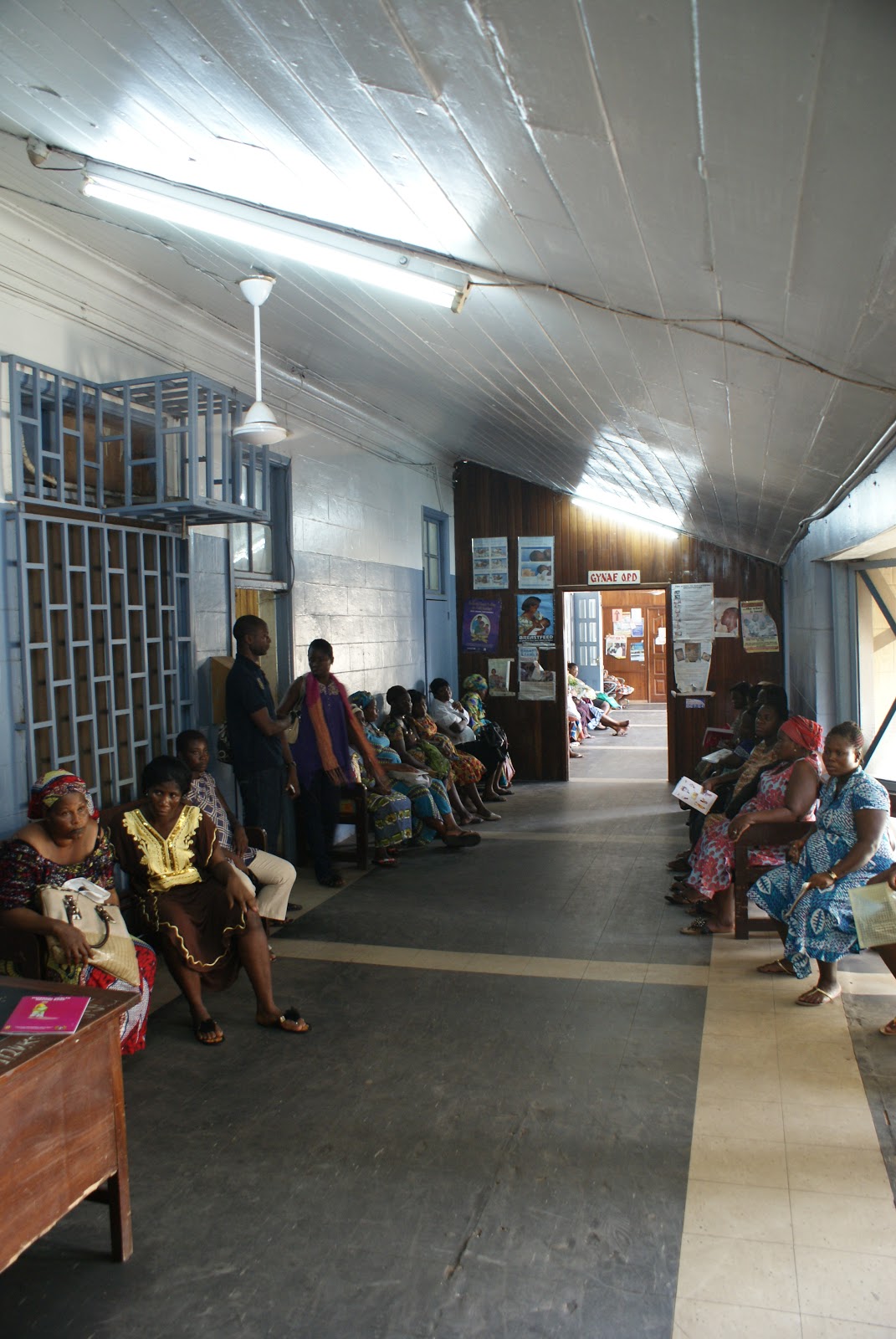The
welcome I got in the neighbourhood I had lived in was unbelievable. From the
tailor I had regularly visited who jumped up when she got a glimpse of me
passing by in the taxi, and started enthusiastically waving with an enormous
smile, to Christine, our neighbour who pulled open the door even before the
taxi had come to a full stop to give me a big hug. A stroll down the street
resulted in even more excited waves, smiles and “welcome!” or “It has been too
long!” from several directions. If there is one thing you can say about Ghana it
is definitely that it houses some of the kindest and warmest people I know.
After
spending a bit more than a day within these familiar surroundings of Accra
(like I never left!), it was time to go towards the far north of Ghana, to the
town of Bawku, of which I could hardly imagine what it would be like. Now,
while sitting on the porch of the house of the tropical doctor I work and stay
with, it is funny to realise how also this new unknown side of Ghana has
already come quite familiar too. I wouldn’t be able to picture life here
without the random children or goats that wander around the house and the
parading roosters and hens that look for a bite to eat among the dust.
The
sounds of rural Ghana are quite different again from urban Ghana. When I have
breakfast on the porch the fresh morning breeze carries the sounds that are
almost similar to the sounds you hear on a sunny afternoon on the beach:
children’s voices, twittering of birds, distant screams of animals (donkeys,
birds, and goats instead of seagulls...), an engine roaring, and other
unidentifiable sounds of human activity. Combined with distant music, the call
to prayer of the mosque, or sometimes singing from the nearby Presbyterian
church, this is the silence of Ghana.
After
breakfast I ride my bike (with basket, yes, I am very excited about that!) to
the hospital, which is no more than 3 minutes. After doing the rounds at the
children’s ward, I work besides the Dutch doctor at the Out Patient Department
(Dutch: Polikliniek). Up till now it hasn’t been too busy, we see around 25 (which
can be upto 40-50 on a busy day) children at the OPD each day, so we usually
have an hour or two free time (which means looking up and studying al sorts of
medical stuff for me...) before we head to the hospital again for another 2
hours of work at the ward from 6pm onwards. The work at the ward happens every
day, also in weekends, since otherwise there is just no doctor that looks at
the children until Monday, which quite usually results in worrying mismanagement....
It is
sometimes estranging to realise how fast I also get used to the lack of
treatment or diagnostic tests when treating these children. It has already
happened some times that we just stopped looking, because any found disease
would be to complex to treat here anyway... Nevertheless, a lot can be done.
Children coming in with malaria (very, very common, almost like a normal flu in
Holland) can sometimes already go home after one day of treatment, and even a
severe malnourished little boy is slowly improving after this week of care in
the hospital. Nonetheless things like very sick or premature new-borns or a boy
diagnosed with HIV and Tuberculose make me wish that I had so much more to
offer here in the hospital.
Life
as a doctor here really means living your work. If you don’t do it, nobody
does, so you easily come to the point that you spend as much time in the
hospital as needed, not depending on the hour or the day. But, how cheesy it
may sound, happy smiles of the children that are discharged healthy from the
hospital make it all worth it. Although some are just happy to finally be freed
from that scary belly-poking white person!
Living
in Bawku at this time of year also means the start of the rainy season. When
the thick grey clouds slowly role in, life here just stops. Warned by hard
dusty wind that picks up a few of the many plastic bags that are scattered
around and blows them away like jellyfish in the sky, everybody rushes inside to
hide from the tremendous pouring-down of rain that follows.
It
also means filling up my basket with gigantic mangoes and pineapple or tasty
sun ripened tomatoes and fresh ginger at the once-every-three-days big farmer’s
market. Or cycling towards the river that defines the border of Ghana and
Burkina Faso, getting waved at and greeted along the way. (Not to mention
getting a flat tire on the way and getting it fixed by a man besides the road
who seemed to be the local bike repairer surrounded by many curious spectators...)
All
together the first week has given me so many impressions already that every
night I am extremely tired and that the next five weeks will probably just fly
by. I’ll try to keep you all posted along the way...
Ps.
Unfortunately not too many pictures yet... I haven’t quite started taking that many!
Pss.
After re-reading some of my blogs I noticed quite some random spelling
mistakes, sorry for that! I’ll try to re-read things I post from now on, haha!
 |
| The landscape of north-eastern Ghana |
 |
| Happy waving children along my way to the border with Burkina |
 |
| Flat tire... |
 |
| Border crossing with Burkina Faso |
 |
| The porch :) Big house huh? Totally did not expect this... |
 |
| Me in action at the Children's Ward |
 |
| Posing with one of the nurses :) |









































